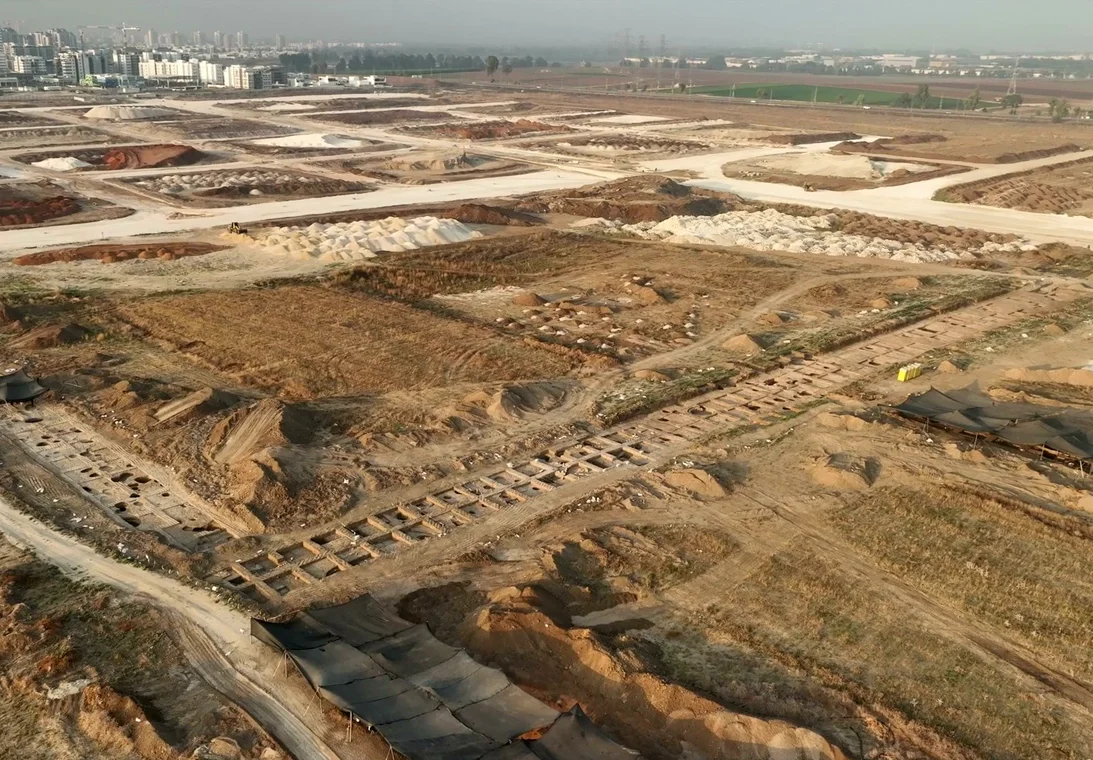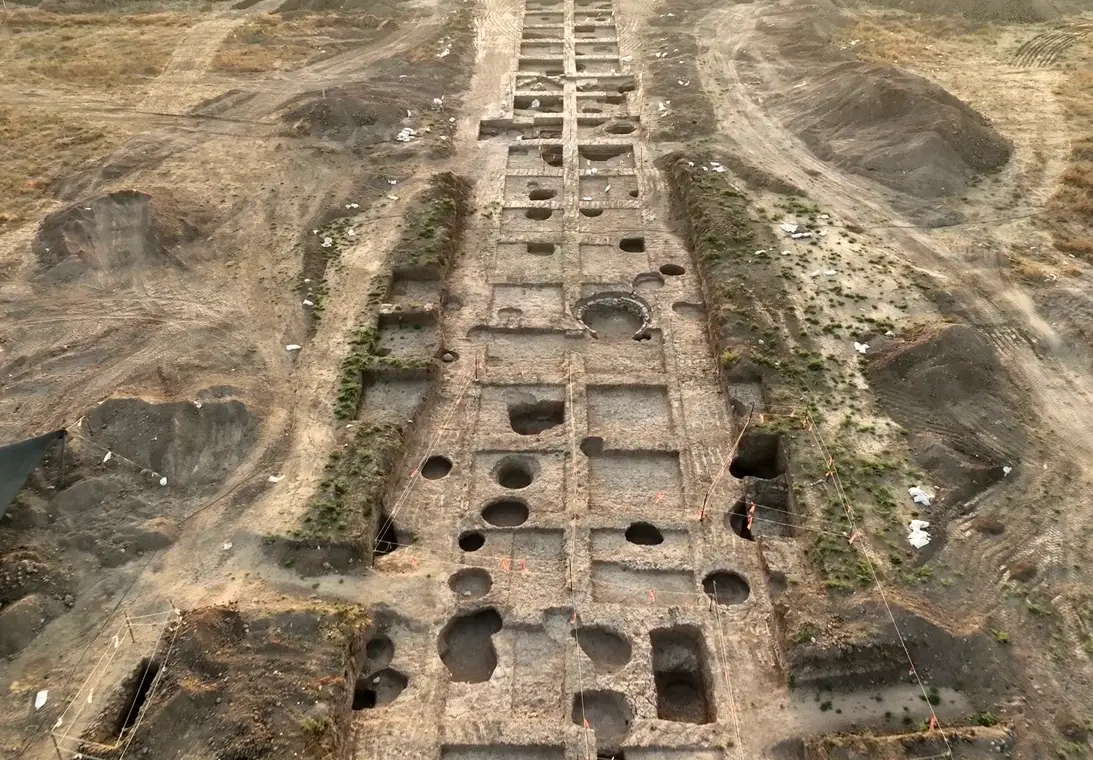Recent excavations near Kiryat Gat have revealed a 5,500-year-old blade workshop dating from the Early Bronze Age.
Led by the Israel Antiquities Authority (IAA) in preparation for a new housing development, the workshop served as a major production centre for specialised flint Canaanite blades.
According to a press statement by the IAA, “These long, razor-sharp tools were created using large stone flint cores—an especially rare find in archaeological sites. Both the blades and the cores are now on public display for the first time at the Jay and Jeanie Schottenstein National Campus for the Archaeology of Israel in Jerusalem.”
While such blades were known from sites in northern and central Israel, a full-scale production workshop had never been identified in the south.

“The excavation shows that the settlement covered a much larger area than previous estimates – over half a kilometre – and it includes hundreds of underground pits, some lined with mud bricks. These pits served a variety of purposes: storage, dwellings, production crafts and cultic/social rituals,” said the excavation directors Dr. Martin David Pasternak, Shira Lifshitz, and Dr. Nathan Ben-Ari.
One of the most intriguing aspects is the lack of waste debris from blade production, suggesting deliberate control over the knowledge and trade of this valuable tool. Experts believe the workshop served as a regional distribution center for Canaanite blades across the Levant.
These exceptional finds offer a rare glimpse into the social and technological foundations of early urban life in ancient Israel. Visitors can now view the artefacts as part of guided tours at the National Campus for Archaeology in Jerusalem.
Header Image Credit : IAA
Sources : Israel Antiquities Authority





